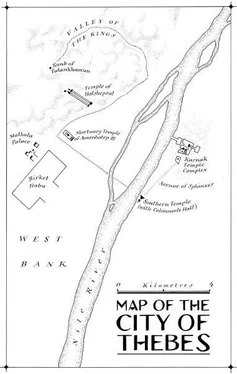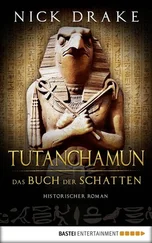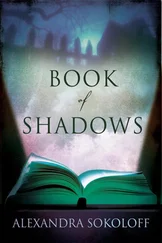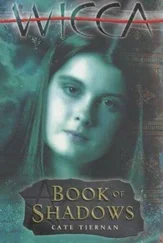Nick Drake - Tutankhamun - The Book of Shadows
Здесь есть возможность читать онлайн «Nick Drake - Tutankhamun - The Book of Shadows» весь текст электронной книги совершенно бесплатно (целиком полную версию без сокращений). В некоторых случаях можно слушать аудио, скачать через торрент в формате fb2 и присутствует краткое содержание. Жанр: Исторический детектив, на английском языке. Описание произведения, (предисловие) а так же отзывы посетителей доступны на портале библиотеки ЛибКат.
- Название:Tutankhamun: The Book of Shadows
- Автор:
- Жанр:
- Год:неизвестен
- ISBN:нет данных
- Рейтинг книги:4 / 5. Голосов: 1
-
Избранное:Добавить в избранное
- Отзывы:
-
Ваша оценка:
- 80
- 1
- 2
- 3
- 4
- 5
Tutankhamun: The Book of Shadows: краткое содержание, описание и аннотация
Предлагаем к чтению аннотацию, описание, краткое содержание или предисловие (зависит от того, что написал сам автор книги «Tutankhamun: The Book of Shadows»). Если вы не нашли необходимую информацию о книге — напишите в комментариях, мы постараемся отыскать её.
Tutankhamun: The Book of Shadows — читать онлайн бесплатно полную книгу (весь текст) целиком
Ниже представлен текст книги, разбитый по страницам. Система сохранения места последней прочитанной страницы, позволяет с удобством читать онлайн бесплатно книгу «Tutankhamun: The Book of Shadows», без необходимости каждый раз заново искать на чём Вы остановились. Поставьте закладку, и сможете в любой момент перейти на страницу, на которой закончили чтение.
Интервал:
Закладка:

Nick Drake
Tutankhamun: The Book of Shadows

DYNASTIC FAMILY TREE

Now when His Majesty was crowned King, the temples and the estates of the gods and the goddesses from Elephantine as far as the marshes of lower Egypt had fallen into decay. Their shrines were fallen into ruin, become mere mounds overgrown with grass. Their sanctuaries were as if they had not yet come into being, and their buildings were footpaths. The land was in chaos. The gods had turned their backs upon it. When an army was sent to northern Syria to extend the boundaries of Egypt, it had no success. If one prayed to a god to ask something from him, he did not come at all. If one beseeched any goddess in the same way she did not come at all. The gods’ hearts were faint in their divine statues. What had been made had been destroyed.
From the Restoration Stela, set up in the temple complex at Karnak in the early years of Tutankhamun’s reignPart One
I know you, I know your names.
Coffin Texts, Spell 4071
Year 10 of the reign of King Tutankhamun, Living Image of Amun
Thebes, Egypt
Three short knocks. I listened to the silence that followed, my heart thudding in reply. Then, to my relief, came the familiar last short knock of the signal. I let my breath out slowly. Perhaps I was getting old. It was still dark, but I was already awake, for sleep had betrayed me once again, as it often does in the melancholy small hours before dawn. I rose from the couch and dressed quickly, glancing at Tanefert. My wife’s head was resting elegantly on its sleeping stand, but her beautiful, disturbed eyes were open, observing me.
‘Go back to sleep. I promise I will be home in time.’
I kissed her lightly. She curled into herself like a cat, and watched me leave.
I drew back the curtain and looked for a moment at my three sleeping girls, Sekhmet, Thuyu and Nedjmet, on their beds, in their shared yellow room crammed with clothes, old toys, papyri, slates, drawings from their childhood, and other objects whose significance eludes me. Our house is too small now for such grown girls. I listened for a moment to the rattle of my father’s strained breathing in his room at the back. It ceased for a long moment, but then another breath worked its way laboriously through his old body. Lastly, as always before I leave the house, I stood beside my young son, Amenmose, sleeping entirely peacefully, his limbs thrown every which way like a dog before a fire. I kissed him on his head, damp with warmth. He did not stir.
Taking my night passes with me, for the curfews were in force, I closed the door soundlessly. Thoth, my clever baboon, loped over to me from his sleeping place in the yard, his short, tufted tail curved upwards, and he rose on his hind legs to greet me. I let him smell my palm, then ran my hand through his thick, brown mane. I made a brief gesture of libation to the little household God in the niche, who knows I do not believe in him. Then I opened the gate and stepped into the shadows of the lane, where Khety, my assistant, was waiting for me.
‘Well?’
‘A body has been found,’ he said quietly.
‘And you woke me for that? Could it not wait for dawn?’
Khety knows how bad my mood can be when I am disturbed too early.
‘Wait until you see it,’ he replied.
We set off in silence. Thoth strained on his leash, excited to be out in the dark, and eager to explore whatever lay ahead. It was a beautiful clear night: the hot harvest season of shemu had ended, and with the appearance of the sign of Sirius, the Dog Star, the inundation had arrived to overflow the banks of the Great River, and flood the fields with rich, life-giving silt. And so once again the time of festival had returned. In recent years the waters often did not rise far enough, or else they rose too much, causing vast devastation. But this year they had been ideal, bringing relief and joy to a population subdued, even depressed, by these dark times of the reign of Tutankhamun, King of Upper and Lower Egypt.
The bright face of the moon cast enough light for us to walk as if she were our lamp. She was almost full, with the great drift of stars about her like a fine mantle: the Goddess Nut who the priests say our dead eyes will gaze upon as we lie back in the little boats of death that carry us across the ocean of the Otherworld. I had been brooding about this as I lay sleeplessly on the couch, for I am one who sees the shadow of death in everything: in the bright faces of my children, in the overcrowded ways of the city, in the golden vanity of its palaces and offices, and always, somehow, in the corner of my eye.
‘What do you think we see after death?’ I asked.
Khety knows he must humour my occasional philosophical musings, as he must humour so much else. He is younger than me, and despite the grim things he has seen in his life of service in the Medjay, his face has somehow preserved its openness and freshness; and his hair, unlike mine, remains naturally as black as midnight. He is still as fit as a thoroughbred hunting dog, with the same passion for the hunt-so different from my own pessimistic and often weary nature. For as I grow older, life seems to me simply an endless succession of problems to be solved, rather than hours to be enjoyed. ‘What fun I am these days,’ I reproached myself.
‘I think we see green fields, where all the pompous aristocrats are slaves and all the slaves pompous aristocrats, and all I have to do all day is hunt ducks in the reed marshes and drink beer to celebrate my glorious success.’
I let his jest pass unacknowledged.
‘If we are supposed to see anything at all, why do the embalmers push onions into our eye sockets? Onions! The bulb of tears…’
‘Perhaps the truth is we see the Otherworld only in our mind’s eye…’ he replied.
‘Now you are sounding like a wise man,’ I said.
‘And yet those who have been born into wealth laze about all day enjoying their luxuries and their love-affairs, while I still work like a dog, and earn nothing…’
‘Well, that is a much greater mystery.’
We passed through the maze of old, narrow passageways zigzagging between precarious houses built to no plan. By day this quarter would be noisy and crowded, but by night it was silent under the curfew: the expensive shops and their luxury offerings were protected behind shutters like the grave goods of a tomb; the carts and stalls of the Alley of Fruit had gone for the night; and the workshops of wood, leather and glass were deserted and shadowy; even the birds in their cages hanging in the moonlight were soundless. For in these dark days fear keeps everyone in obedience. The disastrous reign of Akhenaten, when the royal court and temples were moved from Thebes to the new desert temple city of Akhetaten, collapsed ten years ago. The powerful priests of Amun, who were displaced and dispossessed under Akhenaten, had their authorities, vast landholdings and incalculable worldly riches reinstated. But this did not restore stability; for harvests were poor, and plague killed countless thousands, and most believed these disasters were punishment for the grave errors of Akhenaten’s reign. And then as if to prove the point, one by one the royal family died: Akhenaten himself, five of his six daughters, and finally Nefertiti, his Queen of great beauty, whose last days remain a cause of much private speculation.
Читать дальшеИнтервал:
Закладка:
Похожие книги на «Tutankhamun: The Book of Shadows»
Представляем Вашему вниманию похожие книги на «Tutankhamun: The Book of Shadows» списком для выбора. Мы отобрали схожую по названию и смыслу литературу в надежде предоставить читателям больше вариантов отыскать новые, интересные, ещё непрочитанные произведения.
Обсуждение, отзывы о книге «Tutankhamun: The Book of Shadows» и просто собственные мнения читателей. Оставьте ваши комментарии, напишите, что Вы думаете о произведении, его смысле или главных героях. Укажите что конкретно понравилось, а что нет, и почему Вы так считаете.











